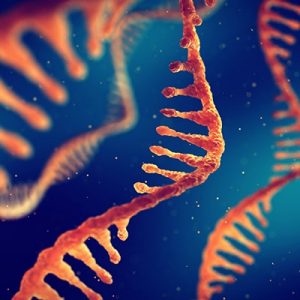FOR IMMEDIATE RELEASE
“High-Throughput Analysis Reveals miRNA Upregulating a-2,6 Sialic Acid Through Direct miRNA: miRNA Interactions”
ACS Central Science

microRNAs can play a role in cancer development and are thought to exclusively suppress protein expression in dividing cells, such as tumor cells. But new research published in ACS Central Science shows that some of these tiny molecules can elevate the expression of a particular gene in dividing human cells and in cancer cells, challenging conventional wisdom.
Only a few nucleotides in length, microRNAs, or miRNAs for short, don’t encode proteins. Instead, they largely downregulate, or suppress, protein production by silencing the expression of certain genes. One class of cellular machinery regulated by miRNAs are the enzymes involved in mediating glycosylation, which add carbohydrates to certain proteins. In cancer cells, however, this process can be highly dysregulated, suggesting that miRNAs could be doing something unusual. So, Lara Mahal and colleagues set out to investigate exactly how miRNAs function within the glycosylation process, and whether the molecules might be functioning in a new way.
Previously, the researchers developed a fluorescence assay that can analyze how miRNAs interact with their targets, and whether they increase or decrease the amount of protein produced. They used the assay to investigate the regulation of cancer-related glycosylation enzymes ST6GAL1 and ST6GAL2, and found that for the former, the miRNAs appeared to directly upregulate the process in noncancerous human cells. This challenges the current understanding that miRNAs only downregulate protein production. They also tested for miRNA-mediated upregulation in multiple cancer cell lines and observed the same results. The researchers say that this work expands the understanding of how miRNAs work, an important consideration for using miRNA-based therapeutics in both current and future clinical trials.
The authors acknowledge funding from the Canada Excellence Research Chair Program.
###
The American Chemical Society (ACS) is a nonprofit organization chartered by the U.S. Congress. ACS’ mission is to advance the broader chemistry enterprise and its practitioners for the benefit of Earth and all its people. The Society is a global leader in promoting excellence in science education and providing access to chemistry-related information and research through its multiple research solutions, peer-reviewed journals, scientific conferences, eBooks and weekly news periodical Chemical & Engineering News. ACS journals are among the most cited, most trusted and most read within the scientific literature; however, ACS itself does not conduct chemical research. As a leader in scientific information solutions, its CAS division partners with global innovators to accelerate breakthroughs by curating, connecting and analyzing the world’s scientific knowledge. ACS’ main offices are in Washington, D.C., and Columbus, Ohio.
To automatically receive press releases from the American Chemical Society, contact newsroom@acs.org.
Note: ACS does not conduct research, but publishes and publicizes peer-reviewed scientific studies.





